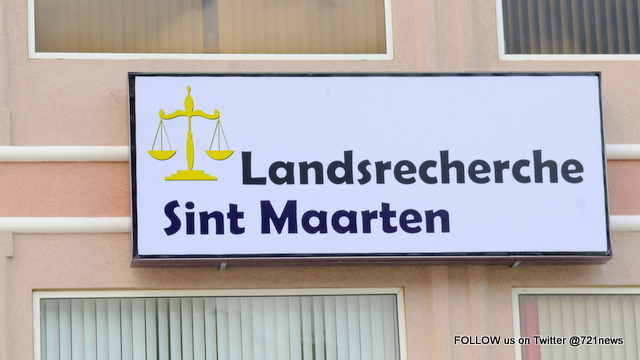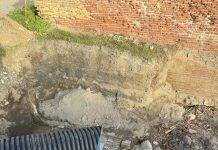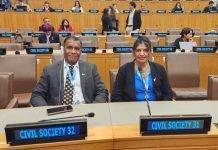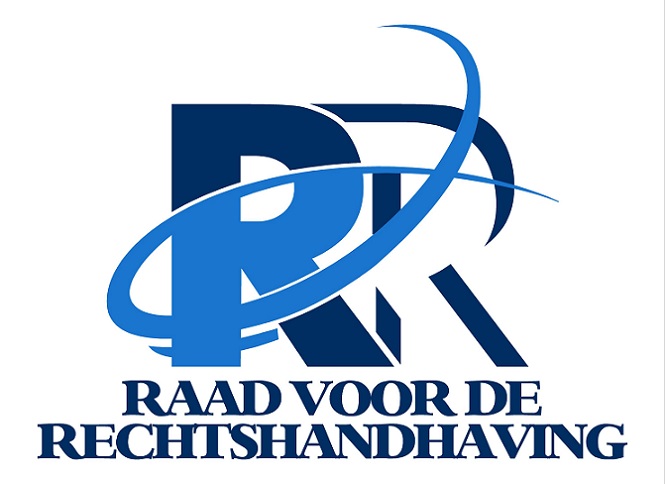PHILIPSBURG, Sint Maarten — The National Detectives Agency (Landsrecherche) doesn’t comply with the most essential preconditions (financial, material and personnel resources) in order to properly function. The Law Enforcement Council (hereafter: the Council) has drawn this conclusion in its most recent inspection report about the Agency.
“The Council concludes that the Agency is at this time unable to (independently) carry out its legal tasks (optimally). The basic conditions for this are lacking,” the Council stated in its report which is published today. The Council concluded that, “Despite the plans to build the Agency, there are still several serious bottlenecks 10 years after the establishment of Sint Maarten’s own National Detectives Agency.”
Problematic functioning
The Council investigated in this inspection to what extent the National Detectives Agency is equipped to execute its tasks. According to the Council, the functioning of the Agency is problematic in all aspects. Policy, management and supervision are lacking. The means of the LSM are inadequate to achieve the objectives, mainly due to the structural lack of budget. The independence of the Agency is also insufficiently secured.
The recommendations made by the Council and other organizations on these bottlenecks were not or were barely followed. “Despite all of this, personnel keep doing their best for the Agency, but they also deserve a (safe) working place to properly carry out their tasks.” The various plans for the establishment and further development of the LSM, the Organization Plan with the accompanying Implementation Plan and the Improvement Program by the Public Prosecutor’s Office have not led to the desired result, namely a fully functioning agency. The legal framework of the National Detectives Agency is largely up to date, but there are bottlenecks where it concerns the legal position of personnel and there is still no formalized function book.
Concrete policy
The Minister of Justice has not formulated concrete policy about what is expected from the National Detectives Agency, with as a result a negative effect on, among other things, the execution of tasks and the collaboration with stakeholders. For the organization, this mostly means that there is insufficient supervision on performance and priorities, which ideally, should be defined as uniform as possible, by the Minister, the Attorney General and the LSM together, and for which accountability can be given.
In recent years the Public Prosecutor’s Office has sought to intensify its supervision of the investigations conducted by the National Detectives Agency using the National Detectives Agency Coordinating Committee (CCLR) along with the Instruction of tasks and deployment of the National Detectives Agency. The Council is nevertheless concerned. For a number of months, deliberations by the CCLR were not regularly conducted. Furthermore, the communication between the LSM and the Public Prosecutor’s Office is not optimal, which affects ongoing investigations.
Integrity investigations
The Council finds that the LSM, in so far as it concerns conducting integrity investigations, has not yet gained its desired standing within law enforcement. In this regard, the Council deems it appropriate that the Minister, as well as the Attorney General, devote (more) effort in supervising the National Detectives Agency. Various strategic platforms are in place for this purpose, including the Tripartite Meeting, the Management Consultation, and the Four Party Judicial Consultation (JVO).
There should be greater investment in critical resources such as a business process system and increasing the current knowledge and capacity through the education and recruitment of personnel. The National Detectives Agency is relatively highly dependent on the support and expertise of the Detective Cooperation Team (RST) and the Anti-Corruption Task Force (TBO). “While this is currently necessary because of the LSM’s lack of capacity and expertise, and cooperation is considered a good thing, the secondment of RST-personnel should not be a long-term solution,” the Council stated.
The Council appreciates the attention the Agency, rightfully, dedicates to the subject of integrity. This attention is reflected in, among other things, the introduction of a code of conduct for employees and the identification of their secondary activities.

Insufficient means
The National Detectives Agency faces budgetary challenges. According to the Ministry of Justice, the financial situation of the Country Sint Maarten is a given, resulting in the Agency’s budget remaining virtually unchanged for the past several years. As such, the Agency has not been able to make the required investments in material and human resources, such as investing in the tools necessary for operations, including its vehicle fleet, and equipment and supplies for use in and around the building. Furthermore, the ability to qualitatively fill vacancies appears to be essential for the growth of the organization. For example, the position of the head of the agency is once again vacant, which has implications for the management of investigations. The afore-mentioned bottlenecks cause employees considerable frustration. In addition, employees experience difficulties due to the lack of a formalized legal status, for example with regard to their national decrees, promotions and remuneration.
Cooperation
Cooperation with local chain partners such as the Sint Maarten Police Force (KPSM) and the Financial Intelligence Unit (FIU) is considered good. Limited cooperation exists with government departments such as the Tax Inspectorate and the Civil Registry. The LSM would like to work towards closer cooperation with these departments and is eager to take steps to this end.
In this regard, the Council stated that: “It has become apparent to the Council that the desirability and feasibility of intensifying the cooperation between the sister agencies within the Kingdom has long been under discussion at a ministerial level. However, without tangible results. Given the limited scale of the countries, the Council feels this is a miss. The Council concludes that all organizations understand the need for cooperation, but that they agree that they have nothing to offer each other as long as their own limitations remain unaddressed. In the opinion of the Council the bottlenecks, which are preventing more intensive cooperation between the organizations, need to be eliminated as quickly as possible.”
Recommendations
The Council’s inspection focused on the legal basis, the organizational structure, (personnel and material) resources, the cooperation with other agencies and the results. The findings of the inspection led to 17 recommendations directed at the Minister of Justice of Sint Maarten. The core message of the Council is that it once again recommends the Minister to make structural work of the further development of the National Detectives Agency.
The Minister is requested to, among other things, provide a regulation on the legal status for the Agency, formalize the LSM function book, provide staffing for the National Detectives Agency in accordance with the established staffing plan, adopt the earlier recommendation issued by the Council concerning an overall political-administrative policy with respect to the National Detectives Agency observing proper performance of tasks and an adequate infrastructure for effective management support, reserve sufficient means in the budget based on the Agency’s needs, and to promote cooperation between the LSM and sister agencies.
With regard to the Office of the Attorney General and the Public Prosecutor’s Office, the Minister is advised to, among other things, conduct an evaluation of the National Detectives Agency Improvement Plan, ensure that the National Detectives Agency is involved in all cases for which the Agency is legally authorized, and to ensure a strong(er) presence of the National Detectives Agency at designated platforms, e.g., the JVO.
The full report titled ‘Inspection: Review of St. Maarten’s National Detectives Agency’ in the English and Dutch language, and all other publications of the Council can be found on the website www.raadrechtshandhaving.com or http://rrh-sxm.org.




























